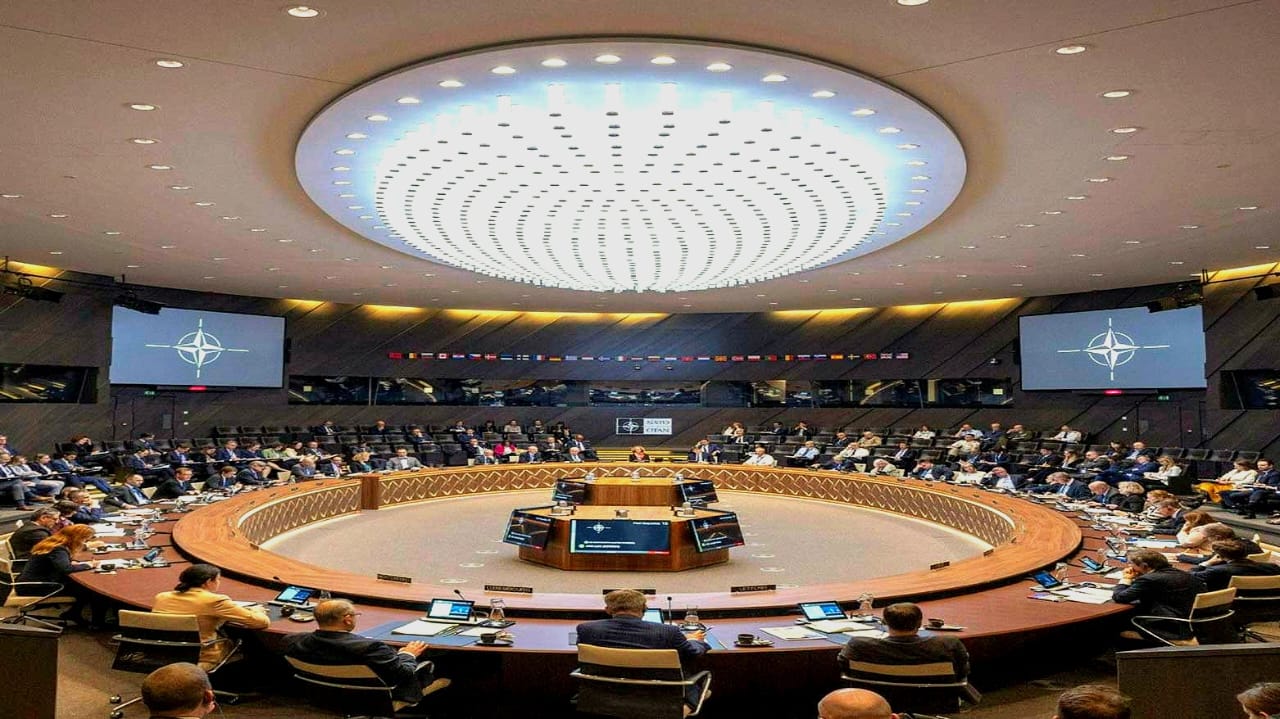NATO Commits Over €20 Billion in Military Aid to Ukraine in First Quarter of 2025
Secretary General Rutte welcomed what he called “the biggest increase in defense spending on the European side of NATO since the end of the Cold War.”

ERBIL (Kurdistan24) – The North Atlantic Treaty Organization (NATO) Secretary General Mark Rutte announced on Sunday that Allied nations have already committed more than €20 billion in military aid to Ukraine in the first quarter of 2025, underscoring NATO’s long-term strategic backing of Kyiv.
This announcement came as NATO Foreign Ministers concluded two days of high-level meetings in Brussels on Friday, focused on preparations for the upcoming NATO Summit in The Hague, as well as discussions on defense investment, equitable burden-sharing, and enhanced cooperation with regional and global partners.
.@SecGenNATO wrapped up two days of #ForMin focusing on preparations for the upcoming #NATOsummit in The Hague, defence investment, burden sharing, Allied support to Ukraine, and cooperation with partners
— NATO (@NATO) April 6, 2025
Watch the full press conference ↓
Ukraine at the Center of NATO’s Focus
A major highlight of the ministerial was the NATO-Ukraine Council meeting, attended by Ukrainian Foreign Minister Andrii Sybiha and the EU’s High Representative for Foreign Affairs, Kaja Kallas. The meeting reaffirmed NATO’s unwavering political and military support for Ukraine, and the newly pledged funding marks a significant escalation of that commitment in 2025.
Defense Spending Hits Historic Highs
Secretary General Rutte welcomed what he called “the biggest increase in defense spending on the European side of NATO since the end of the Cold War,” signaling stronger burden-sharing among Allies. The increase is seen as a vital step toward reinforcing deterrence in light of current and emerging "security threats."
The summit also marked the first NATO ministerial attended by U.S. Secretary of State Marco Rubio, who was commended for his strong diplomatic engagement and commitment to the transatlantic alliance.
Expanding Ties Beyond the Atlantic
In a special session, the North Atlantic Council met with NATO’s Indo-Pacific partners—Australia, Japan, South Korea, and New Zealand—highlighting the Alliance’s increasingly global orientation. The discussions focused on joint security challenges, cyber defense, and preserving international rules-based order amid rising geopolitical tensions.
Path Toward The Hague Summit
The Brussels ministerial served as a critical checkpoint ahead of the NATO Summit in The Hague later this year. Ministers reviewed defense readiness, investment goals, and strategic priorities for the summit, which is expected to shape NATO’s vision through the end of the decade.
Concluding the two-day event, Secretary General Rutte emphasized NATO’s enduring relevance and unity:
“Through the years, working together, Allies have delivered security through strength. From all I heard during the last two days, we are well on track to continue delivering well into the future.”
NATO’s Strategic Evolution
Founded in 1949, NATO has evolved from a Cold War-era defense alliance into a globally engaged security actor. The start of Russia’s 2022 military operations in Ukraine marked a turning point, prompting NATO to significantly enhance forward defense, increase military aid, and deepen partnerships with like-minded nations beyond its traditional borders.
As the war in Ukraine grinds on and global instability rises, the Alliance’s next summit in The Hague is expected to solidify a comprehensive strategy for defense, resilience, and global cooperation in the years ahead.
